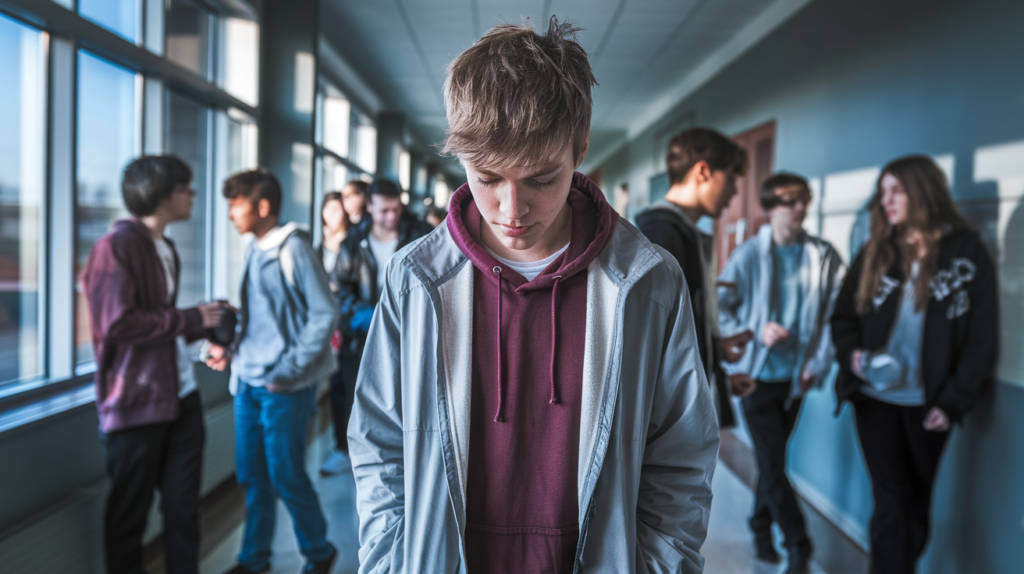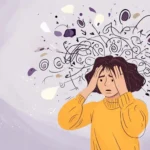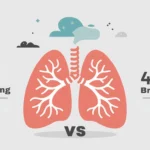
Introduction
Social anxiety and depression are two of the most prevalent mental health conditions, often intertwining to create significant challenges for those affected. While these conditions may feel isolating, understanding their triggers and exploring effective treatment options can empower individuals to reclaim control of their mental health and live fulfilling lives.
In this article, we’ll delve deeper into the common triggers of social anxiety and depression, explore evidence-based treatments, and provide actionable tips to manage symptoms.
Understanding Social Anxiety and Depression
Social anxiety is characterized by an intense fear of being judged, rejected, or humiliated in social situations. On the other hand, depression manifests as persistent sadness, lack of motivation, and difficulty finding joy in daily activities.
While they are distinct conditions, social anxiety and depression often co-occur, creating a cycle where fear of social interactions feeds feelings of loneliness and hopelessness. Recognizing this connection is a vital first step in addressing both issues effectively.
Common Triggers of Social Anxiety and Depression
1. Negative Self-Perception
Low self-esteem is a common factor in both social anxiety and depression. Those with social anxiety often replay and analyze social interactions, worrying they’ve said or done something wrong. Meanwhile, depression amplifies feelings of unworthiness, creating a cycle of negative self-perception.
Boost your self-confidence with daily affirmations or journals like this Guided Self-Care Journal to track your progress and improve your outlook.
2. Past Traumas
Traumatic experiences such as bullying, abuse, or neglect can leave lasting emotional scars. For some, these past events contribute to a deep-rooted fear of judgment or rejection, triggering social anxiety. Others may develop chronic depression as a result of unresolved emotional pain.
3. Stressful Life Events
Major life changes—starting a new job, moving to a new city, or losing a loved one—can be overwhelming. For individuals with a predisposition to social anxiety or depression, these stressors often serve as catalysts for heightened symptoms.
4. Biological and Genetic Factors
Family history and brain chemistry play a significant role in mental health. A genetic predisposition or chemical imbalances, such as low serotonin levels, can increase the risk of developing both conditions.
Consider incorporating serotonin-boosting supplements like Omega-3 Fatty Acids into your diet to support mental health.
5. Social Isolation
A lack of meaningful relationships or prolonged isolation exacerbates symptoms of both social anxiety and depression. Without social support, feelings of loneliness and inadequacy can intensify.
Cognitive-Behavioral Therapy (CBT): A Proven Treatment
How CBT Works
CBT focuses on identifying and reframing negative thought patterns, helping individuals approach life with a more balanced mindset.
- For Social Anxiety: Exposure therapy, a CBT technique, helps individuals confront their fears by gradually engaging in anxiety-inducing social situations.
- For Depression: CBT equips individuals with tools to challenge unhelpful beliefs and adopt more constructive thought patterns.
Evidence Supporting CBT
Research consistently highlights CBT’s effectiveness for both social anxiety and depression. Studies show that individuals undergoing CBT experience improved self-esteem, better emotional regulation, and reduced symptoms in the long term.
Explore CBT workbooks like the Cognitive Behavioral Therapy Workbook to begin your journey to better mental health at your own pace.
Actionable Tips for Managing Symptoms
1. Practice Mindfulness
Mindfulness techniques, including meditation and deep breathing, can help ground you in the present moment, reducing stress and calming anxiety.
2. Avoid Avoidance
While avoiding social situations may feel safe, it reinforces fear over time. Gradual exposure to these scenarios builds resilience and confidence.
3. Prioritize Physical Wellness
A healthy lifestyle supports mental well-being. Regular exercise, adequate sleep, and a balanced diet rich in nutrients can significantly reduce symptoms.
Invest in fitness gear like the Yoga Mat for Home Workouts to make physical activity a consistent part of your routine.
4. Build a Support System
Connecting with supportive friends, family, or mental health support groups provides emotional safety and encouragement.
5. Set Small, Achievable Goals
Breaking tasks into manageable steps prevents overwhelm. Celebrating small victories can help maintain motivation and combat feelings of hopelessness.
Exploring Additional Treatment Options
1. Medication
For some individuals, medication may be necessary to manage symptoms. Antidepressants or anti-anxiety medications can help correct chemical imbalances, allowing therapy to work more effectively.
2. Lifestyle Changes
Adopting habits that support mental health—like limiting caffeine, reducing screen time, and spending time outdoors—can significantly improve symptoms.
Consider tools like the Blue Light Blocking Glasses to minimize digital eye strain and promote better sleep.
3. Seek Professional Help
If symptoms persist, consulting with a therapist or psychiatrist can provide tailored treatment and support.
Final Thoughts
Social anxiety and depression can feel overwhelming, but with the right strategies and support, they are manageable. Understanding your triggers, incorporating evidence-based treatments like CBT, and making small, consistent changes to your daily routine can create lasting improvements in your mental health.















